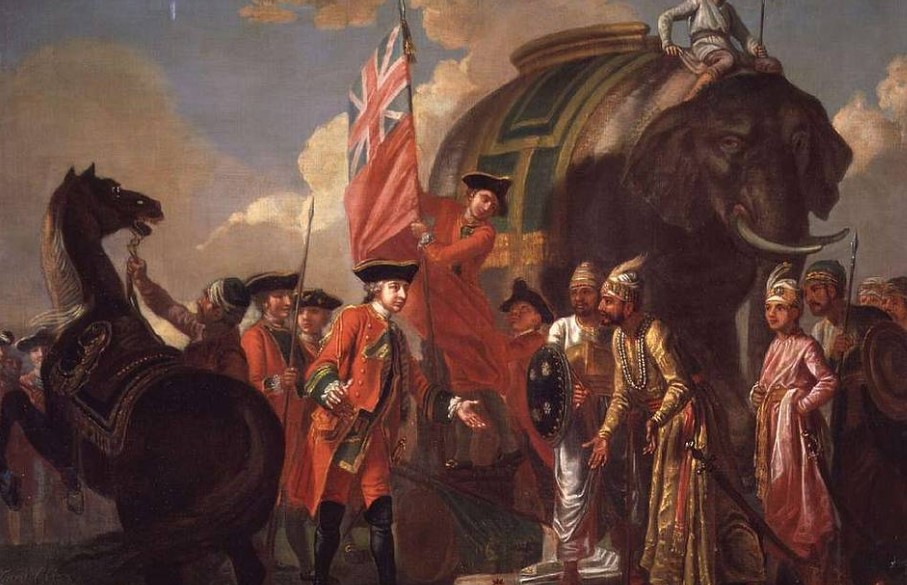
Modern History MCQs – 11 (Arrival of Gandhi and Jallianwala Bagh Massacre)
Most important multiple choice questions from the chapter – Arrival of Gandhi and Jallianwala Bagh Massacre MCQs.
Home » UPSC Study Materials » Prelims Express » Chapterwise MCQs » Modern History MCQs » Modern History MCQs – 12 (Khilafat and Non Cooperation Movement)
Khilafat and Non Cooperation Movement MCQs with answers and explanations for UPSC and Other examinations.
1. Consider the following statements about The Khilafat Movement :
1. It was mainly started by Muhammad Ali and Shaukat Ali.
2. It was a protest campaign launched by Muslims in British India regarding the position of Caliph.
Which of the above statements is/are correct ?
(a) 1 only
(b) 2 only
(c) Both 1 & 2
(d) None of the above
Correct Answer – (c) Both 1 & 2
2. Who among the following was elected as President of the All India Khilafat Conference in 1919 ?
(a) Mahatma Gandhi
(b) Muhammad Ali Jinnah
(c) Maulana Shaukat Ali
(d) Motilal Nehru
Correct Answer – (a) Mahatma Gandhi
3. Which among the following Muslim leaders was not involved in the Khilafat Movement ?
(a) Mohammad Ali
(b) Shaukat Ali
(c) Abul Kalam Azad
(d) Mohammad Ali Jinnah
Correct Answer – (d) Mohammad Ali Jinnah
4. Consider the following statements about The Moplah Rebellion :
1. It broke out in Bombay in 1921.
2. It was against the Hindu landlords of Kerala.
Which of the above statements is/are correct ?
(a) 1 only
(b) 2 only
(c) Both 1 & 2
(d) None of the above
Correct Answer – (b) 2 only
5. In which year the Non-Cooperation movement was launched by the Indian National Congress ?
(a) 1917
(b) 1918
(c) 1920
(d) 1928
Correct Answer – (c) 1920
6. Consider the following statements about The Non-Cooperation movement :
1. Gandhi started the movement with the return of the Kaiser-e-Hind medal.
2. Motilal Nehru never joined the movement.
Which of the above statements is/are correct ?
(a) 1 only
(b) 2 only
(c) Both 1 & 2
(d) None of the above
Correct Answer – (a) 1 only
7. Mahatma Gandhi halted the Non-Cooperation Movement due to which among the following events ?
(a) Kakori Case
(b) Chauri-Chaura incident
(c) Jallianwala Bagh Massacre
(d) Death of Lala Lajpat Rai
Correct Answer – (b) Chauri-Chaura incident
8. After which among the following incidents, Mahatma Gandhi had called Non Cooperation Movement as his ‘Himalayan Blunder’ ?
(a) Kakori Case
(b) Chauri-Chaura incident
(c) Jallianwala Bagh Massacre
(d) Death of Lala Lajpat Rai
Correct Answer – (b) Chauri-Chaura incident
9. Which of the following pairs is NOT correctly matched ?
(a) 1885 → Foundation of Indian National Congress
(b) 1905 → The Partition of Bengal
(c) 1909 → Morley-Minto Reforms
(d) 1942 → Non-Cooperation Movement
Correct Answer – (d) 1942 → Non-Cooperation Movement
10. Consider the following statements about The Non-Cooperation movement :
1. Mahatma Gandhi withdrew the Non Cooperation Movement in 1922.
2. C.R. Das and Motilal Nehru opposed the withdrawal of the Movement.
Which of the above statements is/are correct ?
(a) 1 only
(b) 2 only
(c) Both 1 & 2
(d) None of the above
Correct Answer – (c) Both 1 & 2
11. Swaraj Party was formed after the failure of which among the following movements ?
(a) Non-Cooperation Movement
(b) Quit India Movement
(c) Civil Disobedience Movement
(d) Swadeshi Movement
Correct Answer – (a) Non-Cooperation Movement
12. Who one of the following leaders was not associated with the Swaraj Party ?
(a) Rajendra Prasad
(c) N.C. Kelkar
(b) C.R. Das
(d) Motilal Nehru
Correct Answer – (a) Rajendra Prasad
13. Who of the following is also known as ‘Deshbandhu’ ?
(a) Rajendra Prasad
(b) Chitranjan Das
(c) A.O. Hume
(d) C. Rajagopalachari
Correct Answer – (b) Chitranjan Das
More questions are coming soon. Join us on Whatsapp for latest updates: Join CivilsCracker on Whatsapp

Most important multiple choice questions from the chapter – Arrival of Gandhi and Jallianwala Bagh Massacre MCQs.

Most important multiple choice questions from the chapter – Simon Commission and Nehru Report MCQs.

Most important multiple choice questions from the chapter – Civil Disobedience Movement MCQs.

Most important multiple choice questions from the chapter – Communal Award and Poona Pact MCQs.

Most important multiple choice questions from the chapter – Individual Satyagraha and Cripps Mission MCQs.

Most important multiple choice questions from the chapter – Quit India Movement MCQs.

Most important multiple choice questions from the chapter – Indian National Army and Royal Indian Navy Mutiny MCQs.

Most important multiple choice questions from the chapter – Cabinet Mission and Formation of Constituent Assembly MCQs.

Most important multiple choice questions from the chapter – Independence and Partition of India MCQs.
We are adding new Notes, Chapterwise MCQs, Quizzes, Previous Years Questions everyday
We are adding new Notes, Chapterwise MCQs, Quizzes, Previous Years Questions everyday